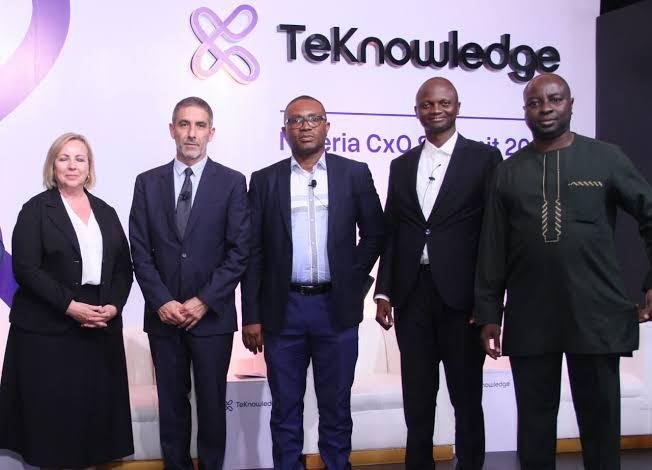Nigeria is at the forefront of a transformative shift in workforce dynamics, driven by the rise of “Frontier Firms” that harness artificial intelligence and hybrid human-agent teams, according to Microsoft’s 2025 Work Trend Index Report.
The report, conducted with LinkedIn, underscores Nigeria’s growing role in AI adoption, ranking 7th in Africa for AI readiness, as businesses in fintech, healthcare, and agriculture embrace digital labour.
Drawing insights from 31,000 professionals across 31 countries and trillions of Microsoft 365 signals, the report, titled “2025: The Year the Frontier Firm Is Born,” highlights how Frontier Firms use scalable AI to bridge workforce capacity gaps.
In Nigeria, where AI startup investments surged 43 per cent since early 2023, according to the Lagos AI Institute, 78 per cent of business leaders plan to hire for AI-specific roles like trainers, data specialists, and strategists within 18 months, with 95 per cent of Frontier Firms leading the charge.
“Nigeria’s dynamic AI adoption is reshaping how work is done,” said Country Manager for Microsoft Nigeria, Ola Williams. “Just as the internet spawned new industries, AI is creating roles and opportunities. Frontier firms are leading this transformation, blending human and digital labour to drive innovation.”
The report reveals that 47 per cent of Nigerian leaders are focusing on upskilling their workforce for AI, while 82 per cent anticipate deploying AI-driven solutions by mid-2026.
Frontier firms are shifting from traditional hierarchies to fluid, outcome-driven structures, with human-agent teams excelling in marketing, customer service, and data science. But a knowledge gap persists: 67 per cent of leaders are familiar with AI agents, compared to only 40 per cent of employees, underscoring the urgency of widespread AI education.
Nigeria’s AI momentum is bolstered by government policies promoting innovation, as noted in the 2024 Oxford Insights AI Readiness Index. In fintech, platforms like OPay leverage AI for fraud detection, while healthcare sees AI-powered telemedicine advancements.
The report, however, warns that unequal access to AI skills could deepen disparities. “Frontier Firms set a powerful example, but inclusive upskilling is essential,” Williams said.
With 79 per cent of leaders believing AI will accelerate career growth, compared to 67 per cent of employees, the report calls for bridging this optimism gap.







